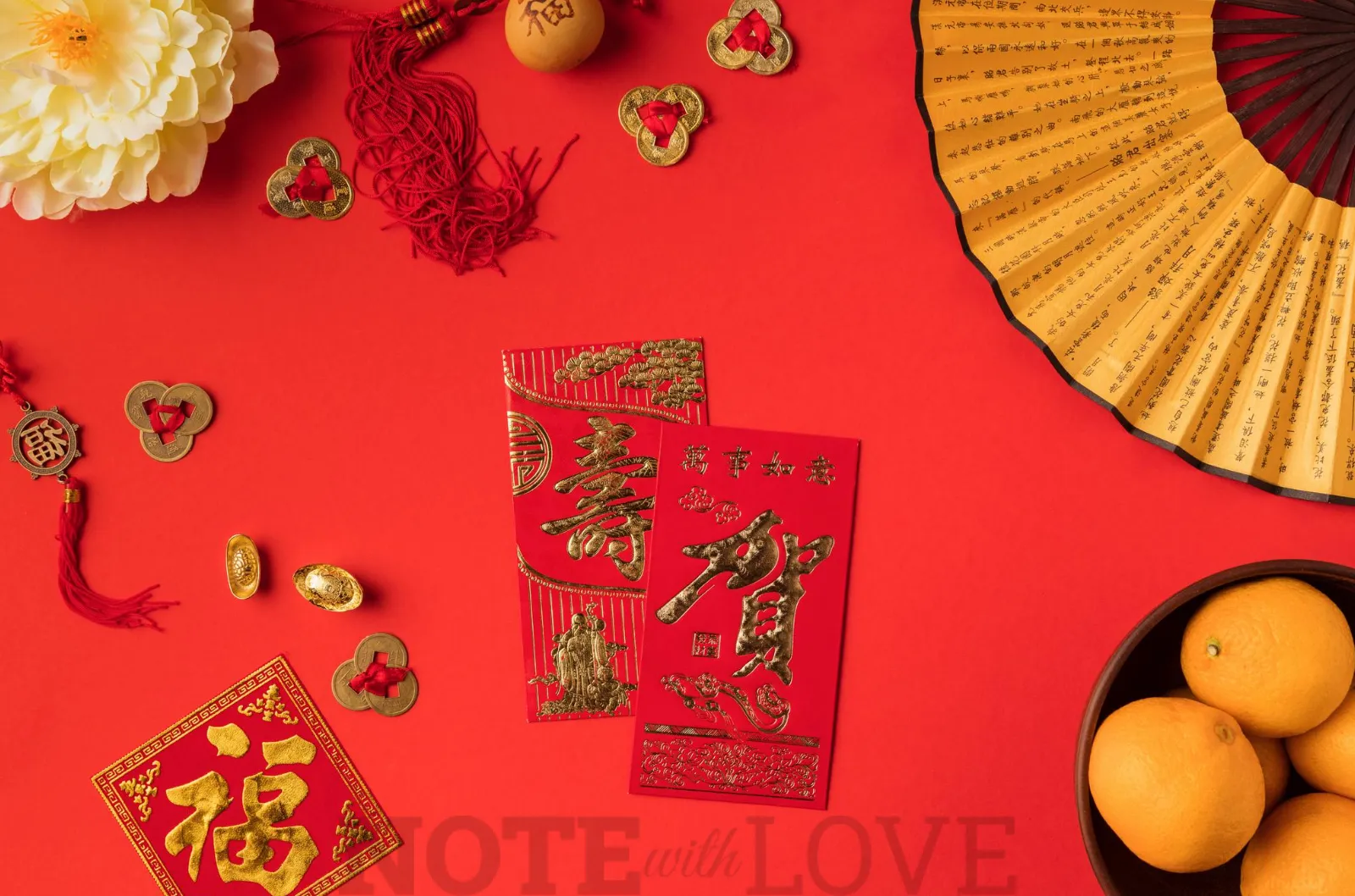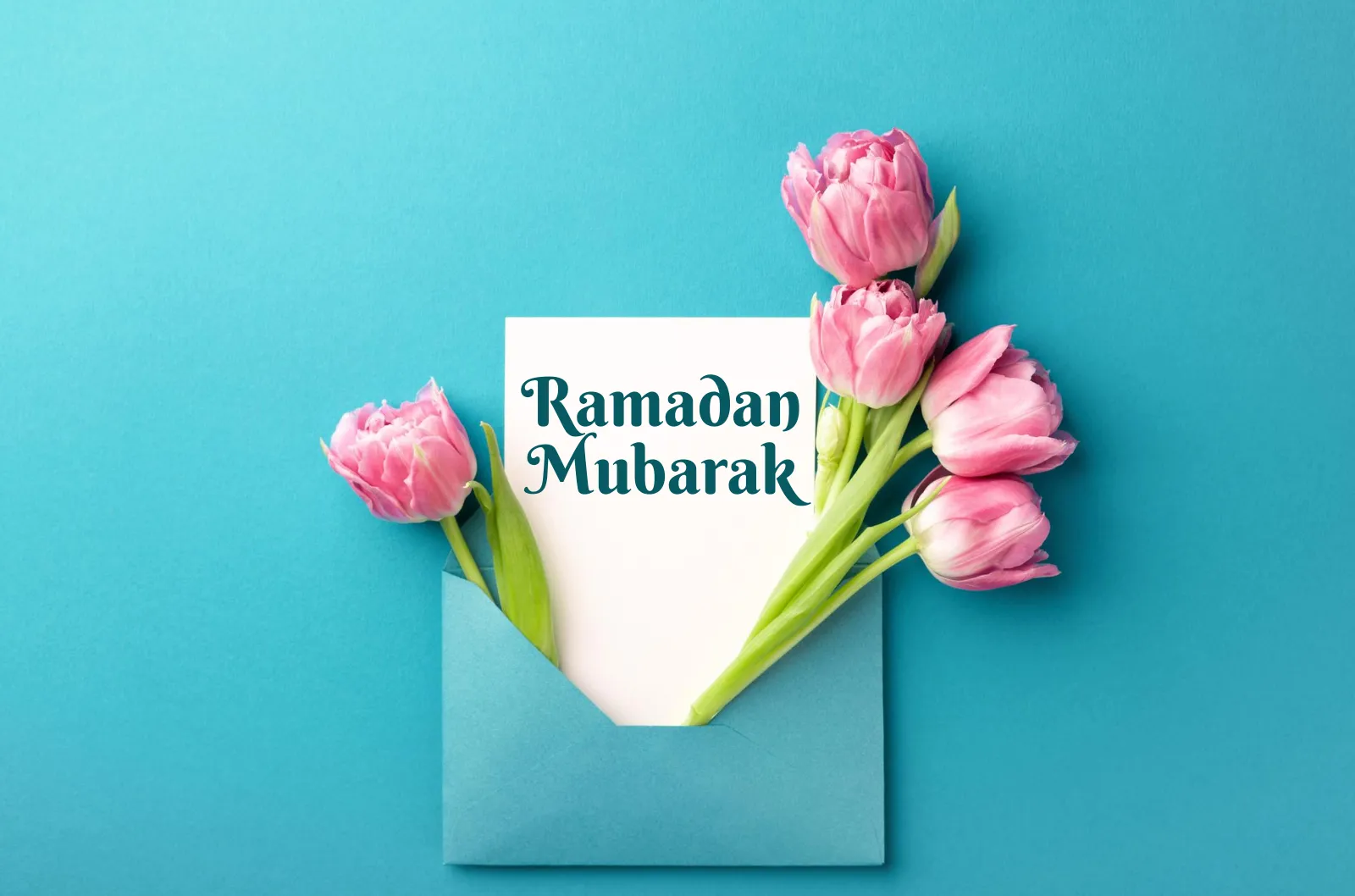- Family
- Friend
- Message
- Family
- Party ideas
- New Year
Chinese New Year 2025 - How To Celebrate Traditionally
by Note with Love Team - Jan 7, 2025
Introduction
People of Chinese descent all over the globe celebrate Chinese new year, also known as the Spring Festival or the Lunar new year. In some East Asian nations, it is a significant event that heralds the start of the year. People gather with their families, exchange gifts, and observe many other traditions during this time of year. Chinese new year is a state holiday since 2022 in California only. Since the holiday is premised on the lunar calendar, which is rooted in the cycles of the moon, its exact date varies every Chinese year.
When Is The Chinese New Year In 2025?
The lunar new year is premised on the lunar calendar, which follows the cycles of the moon. Thus its exact date varies every year on the Gregorian calendar, which most of us are familiar with. However it is usually between January 21 and February 20.
Chinese New Year 2025 falls on Wednesday, January 29th, 2025 marking the beginning of the year 4723 in the Chinese Calendar. With 16 days of several cultural rituals and festivals the celebrations culminate with the Lantern Festival on February 12th, 2025.
2025: Year Of The Snake
The year of the Snake officially starts on January 29th, 2025, as the year of the Dragon comes to an end. In the Chinese Zodiac, the Dragon is the fifth animal.
In the Chinese zodiac, 2025 is the Year of the Wood Snake. Snakes are the sixth animal in a 12-year cycle, and they are recognized for their wisdom, intuitions, and passion.
In Chinese culture, the Snake is revered for its wisdom, intuition, and ability to transform. People born in Snake years have a sharp mind and loves deep thinking. They are very passionate about their goals and pursue them with great determination. They usually analyze situations thoroughly before taking any action. This sometimes lead to overthinking and indecisiveness.
As for weakness, Snakes are skeptical, secretive, and stubborn. They can be possessive in relationships and struggle with feelings of jealousy.
People born in Snake years, such as 1929, 1941, 1953, 1965, 1977, 1989, 2001, 2013, 2025 are naturally charismatic and graceful. But they often come across as distant for their reserved nature.
The wood snake stands for new beginnings. The Wood element introduces qualities of growth, creativity, and flexibility. It encourages everyone to change old habits that limit their growth and adapt to new ones that brings prosperity and spiritual evolution.
Chinese Zodiac and Animals - How Are They Related?
According to popular belief, the Chinese zodiac has existed since the Han Dynasty (202 BC-220 AD). Each of the 12 animals from the Chinese zodiac is associated with a particular year. These animals are connected with the legend of the Great Race, in which the Jade Emperor invited all the animals to compete where they were ranked in accordance with the order in which they crossed the finish line, with the rat coming in first.
Here is the order of the animals in the Chinese zodiac:
- Rat
- Ox
- Tiger
- Rabbit
- Dragon
- Snake
- Horse
- Goat
- Monkey
- Rooster
- Dog
- Pig
These animals are thought to have specific qualities and traits. According to the belief, people who were born in a particular year are said to possess the personality traits of that animal. Each animal corresponds to a particular element, and it is thought that the element of the year in which a person is born has an impact on their luck and personality.
How Long Is The Chinese New Year Celebrated For?
The lunar year is approximately 11 days shorter than the solar year. Each month in the lunar calendar starts on the day of the new moon, and the lunar year starts on the second new moon following the winter solstice. However, Chinese new year usually occurs in January or February.
The Chinese new year is celebrated for up to 16 days in China. The celebration begins on the first day of the lunar new year, with the first seven days being public holidays, and ends on the 15th day with the Lantern Festival. In other parts of Asia, the celebrations vary in duration.
Let's take a dive into the traditional festivities that will be observed this year to celebrate the lunar new year.
The Laba Festival (Jan 5th)
Traditionally, everything kicks off on January 5th with the Laba Festival. It is a time for memorial services and prayers to the gods and ancestors for good luck and a bountiful harvest. Although the festival has pagan roots, it has been incorporated into other faiths like Daoism and Buddhism.
Laba porridge is served as the main dish along with Laba tofu, noodles, and wheat kernel rice during the Laba Festival. Additionally, eating ice on this day is also thought to prevent stomachaches for the rest of the year.
The Little Year (Jan 21st)
Starting of main festivities. It’s the opening celebration of the Chinese new year, scheduled for January 21, 2025. It is a day dedicated to memorial and prayer rituals, which also include cleaning the house to drive out bad luck and saying a prayer to the god of the stove.
On this day, special foods like sugar melons, stove candy, baked wheat cakes, and tofu soup are customarily devoured.
New Year's Eve (Jan 28th)
This is basically the new year's eve. It is the time when families gather around for the annual reunion dinner and when families stay up late after dinner to ring in the new year. It is particularly enjoyable to the children as they receive red envelops with gift token or money.
Spring Festival (Jan 29th–Feb 8th)
The Spring Festival on new year's day is the centerpiece of the Chinese new year celebration. It's a day for setting off firecrackers, saying hello to, and blessing your neighbor. Each day of the Spring Festival has its own set of activities and traditions. Such as –
- January 30th is the day when married daughters are expected to visit their parents' house with their husbands and kids
- January 31st is the Day of the Rat. Folks leave grains and crackers in corners for rats to share in order to keep them from bothering humans throughout the year.
- February 1st, Day of the Sheep, a day for praying to the god of wealth offering meat, fruits, and wine. Sheep slaughter is prohibited on this day.
- February 2nd is Break Five, a day for markets and stores to reopen and for women to give new year blessings.
- February 3rd, Day of the Horse, a day for praying to the kitchen god
- February 4th, Day of the Human is a day for praying to the god of happiness.
- February 5th, Day of the Millet is a day for praying to the god of wealth and fortune
- February 6th is Providence Health, a day for paying respects to the Jade Emperor.
- February 7th is Stone Festival, a day for house cleaning
- February 8th is Son-In-Law day, a day for visiting relatives when a father invites their daughter and son-in-law to dinner.
Lantern Festival (Feb 9th–Feb 12th)
The Lantern Festival commences on the 15th day of the Chinese calendar year which is February 12th, 2025. People make lanterns and play games like Lantern Riddles and moon-gazing during the festival. According to Chinese mythology, lighting lanterns can increase the fertility of Chinese families and bring good fortune. Chinese families participate in a series of activities during the festival, which can be summarized by the following rhyme:
Make noise on the 11th, build light sheds on the 12th, light the lantern on the 13th, light is bright on the 14th, a full moon on the 15th, end the light on the 16th
How Do You Say Happy New Year In Chinese?
“Happy new year” in Chinese is "新年快乐" (xīn nián kuài lè) or "新年好" (xīn nián hǎo), which means “new year well”. Another way you could say it is "恭喜发财" (gōng xǐ fā cái), which means "Congratulations, and may you be prosperous."
Top 10 Traditions To Celebrate The Lunar New Year
The top ten traditions typically observed to mark the Lunar new year are listed below:
- Cleaning the house: Cleaning the house before the Lunar new year is thought to sweep away the evil eye and bad luck from the previous year.
- Decorating with red: In Chinese culture, the color red represents good fortune and prosperity. Red lanterns, paper cuts, and couplets are used to decorate homes in order to welcome luck for the coming year.
- Fireworks and firecrackers: Loud noises are thought to ward off evil spirits and bring good luck. During the Lunar new year festivities, firework displays and crackers are quite often lit.
- Reunion dinner: The reunion dinner, which takes place on new year's Eve, is the most significant meal of the year. It is a time when Chinese families gather to welcome the new year.
- Giving red envelops: Red envelops are given to children as a symbol of luck and prosperity. These are called "hongbao," or red envelopes. Typically, the envelopes are filled with money.
- God-worshipping: During the new year, many people go to temples to pray and make offerings of various meats, fruits, and wines to the gods.
- Paying respects to ancestors: A lot of families go to shrines to pay their respects to their ancestors and to pray for good luck in the future year.
- Hanging up spring couplets: Spring couplets are a pair of poetic phrases that are hung up on walls or doors and are traditionally written on red paper. They are intended to bring good fortune and happiness to the home.
- Dragon and lion dances: The dragon and lion dances have a rich cultural history in China and are a treasured aspect of the new year festivities. Both the dragon and lion dances include music, acrobatics, and other spectacle elements. Both performances are intended to bring the community good fortune and prosperity.
- Eating lucky foods: Some foods are traditionally eaten during the Lunar new year and are thought to bring good luck. Fish, Nian Gao (sticky rice cake), and dumplings are some of them.
Here's an infographic on these made by our team.
Special Food Items On The Chinese New Year
At the gatherings, family members eat specialties that are said to bring prosperity, joy, and fortune. Some of the most popular dishes served at the Spring Festival are –
- Nian Gao(年糕 - nián gāo), a traditional Chinese dish made of sticky glutinous rice or yellow rice. In southern China, it is typically savory, while in northern China, it is sweet. As nian gao sounds similar to the Chinese word for "high" or "tall," it's thought to bring success and good fortune. It is often steamed or boiled, but it can also be pan-fried or deep-fried. Nian gao comes in a wide variety of flavors, such as white nian gao, jujube nian gao, and hundred fruit nian gao.
- Hot pot, a traditional Chinese dish consists of a bubbling pot of broth accompanied by raw meat and vegetables. The broth and the dipping sauce add flavor to the dish, which can be made by combining ingredients such as sesame paste, egg, cilantro, and peppers.
- Spring rolls, which resemble gold bars and represent prosperity and wealth, can be deep fried, steamed, or baked and stuffed with a variety of items such as pork, Bok choy(Chinese cabbage), and shrimp.
- Dumplings, which can be steamed or pan-fried and are shaped like ancient Chinese silver and gold ingots to represent the exchange between the old and new year.
- Steamed fish, which represents abundance and prosperity, is often served whole with the head and tail intact and should be eaten.
- Steamed chicken, must be included in the menu as it represents a successful start to the new year and is frequently served whole.
Myths About The Lunar New Year
The Monster and new year's Eve: Every year, a monster by the name of Nian would descend to gorge itself on both people and animals. Red and raucous noises both scared it away.
Evil Spirits and Poetry: Spring Festival couplet poems (春联 / chūn lián) were placed on doors to ward off demons who prowled the streets at night looking for trouble.
Fortune is here!: As a decoration, the word "fu", which means fortune or happiness, is written upside down on red paper. The tradition began when an illiterate family explained why they wrote it upside down, and the Emperor accepted their justification.
Dumplings and Ears: While some claim that dumplings have the appearance of gold and silver ingots, others assert that they resemble ears. The latter notion might be a result of a myth involving the goddess Nǚwā. She made the dumplings to commemorate the creation of humans, which she shaped into ears.
Malt Candy: A traditional new year's treat, malt candy is regarded as bringing prosperity and well-being. The candy comes in a variety of shapes, including animals, flowers, and plants, and is believed to bring unique blessings for the new year.
Celebrations In The United States
In the United States, different communities observe the Chinese new year in a variety of ways.
San Francisco's Chinatown hosts the most well-known celebrations, which include parades, dragon and lion dances, and other cultural activities and performances.
Numerous celebrations and events are also held in other cities with sizable Asian populations, such as Los Angeles, New York, Seattle, and Houston. A lot of schools and community organizations also host celebrations for the holiday, including craft fairs, cultural shows, and food festivals. A lot of cultural institutions like museums have displays and educational programs dedicated to the Chinese new year.
Concluding Thoughts
The Chinese new year celebration offers people from all walks of life the chance to become more aware of and appreciative of the culture. Overall, it's a time for getting together with family and friends, engaging in cultural exchange, and honoring tradition and heritage.
Trending in Notes
If I had a dollar for every time you’ve made my life better, I’d be the richest person in the world. Here’s to you, my love—happy birthday!
I may have taken you for granted at times, and things may have been tense or uncomfortable recently. But I do want you to know how much I value you and how happy I am to have you in my life. This Thanksgiving I am thankful that I have you.
You May Also Like


- Gift Idea
- Family
30+ Valentine's Gifts For Her- Shower Love In 2025

- Celebrations
- Family
- Friend
- New Year










